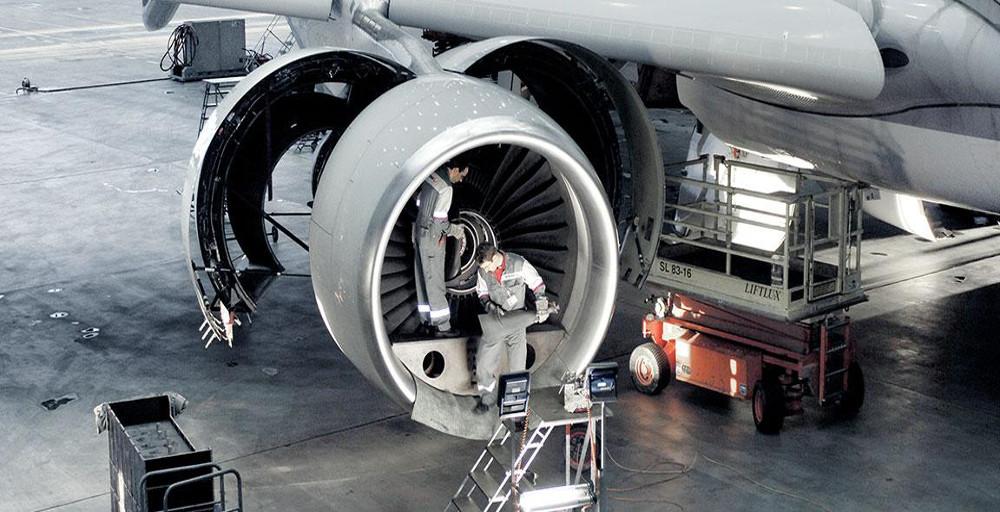
The novel coronavirus pandemic is expected to result in a wave of cancelled maintenance orders over the coming months, a view shared by SR Technics which foresees a drop off in scheduled engine repairs in 2020.
The Swiss MRO services engines in its Zurich shop, where it conducts repairs on CFM56-5B/5C and -7B engines along with maintenance for the PW4000-94/100 series.
To date, the Zurich facility remains fully operational with staff delivering on existing engine MRO agreements—subject to any governmental restrictions, decisions and directives. However, SR Technics foresees a reduction in engine maintenance work scheduled for later in the year.
“In the coming months we do expect a reduction of planned shop visits, due to operators delaying their planned engine maintenance and we are currently in a process to find feasible solutions with our customers,” an SR Technics spokesperson told Aviation Week.
While the long-term effects of the pandemic can’t be fully determined, SR Technics says its fast decline in passenger demand and aircraft operation has meant it isn’t unaffected. “Over the last days, we have received several inquiries from our customers asking for payment deferrals and we expect this to increase further,” its spokesperson says.
Line maintenance operations in Europe have also been impacted. Over the past weeks, SR Technics has seen an impact at its 12 line stations at locations in Switzerland, Spain and the UK due to less flying hours.
However, it is still seeing requests to keep aircraft airworthy. “Currently, short-term aircraft storage maintenance, out-of-storage checks and return-to-service maintenance is high in demand and we are prepared in case our customers require long-term storage care and maintenance,” the company spokesperson says.
SR Technics says it is looking at ways of mitigating COVID-19's impact internally. Measures include looking at ways for maintenance flexibility, including the parking of customer aircraft on its premises and deploying technology-orientated service offerings such as its virtual table inspection service, which enables remote access viewing of the inspection process.
For day-to-day operations, the company has tightened what it deems to be unnecessary spending while also looking to reduce working hours, which it says will be offset by Swiss unemployment insurance which covers 80% of employee working hours to prevent redundancies.





